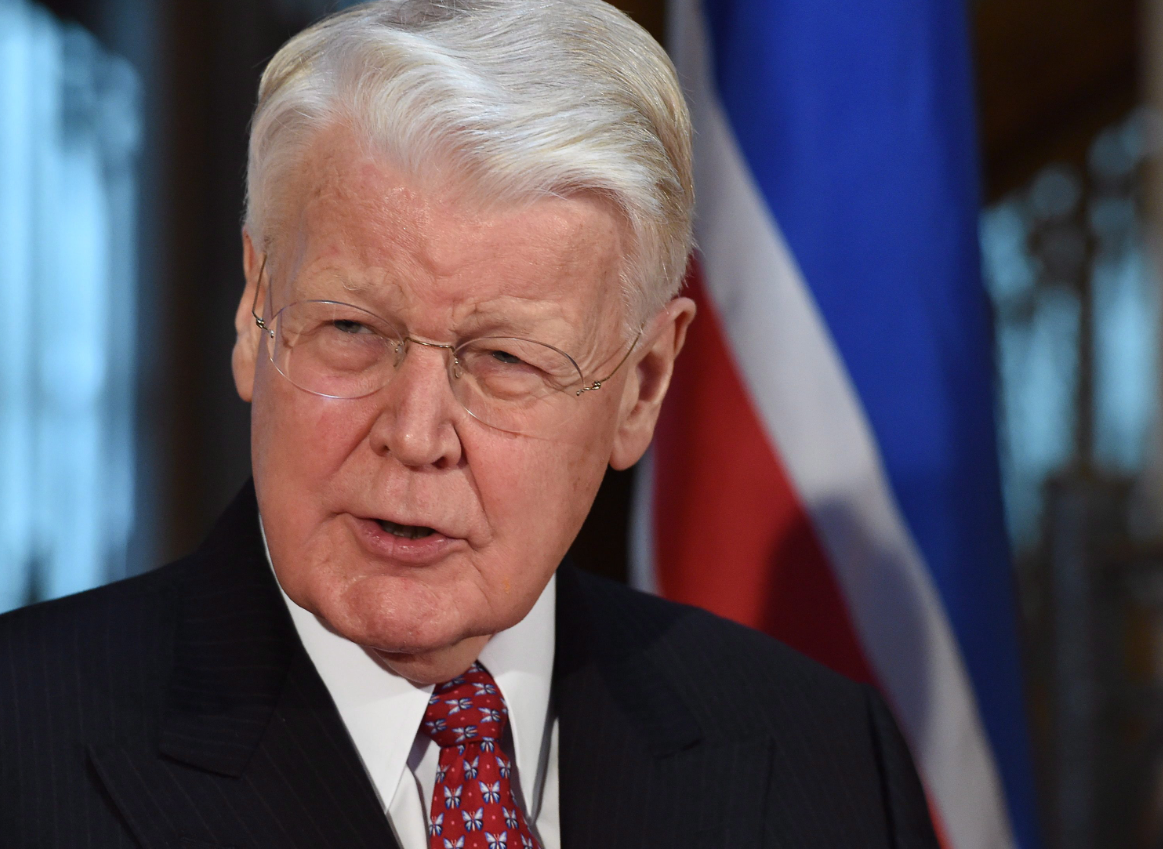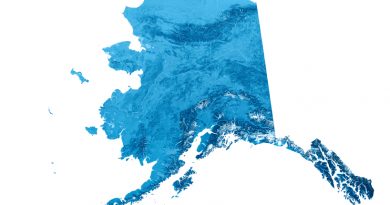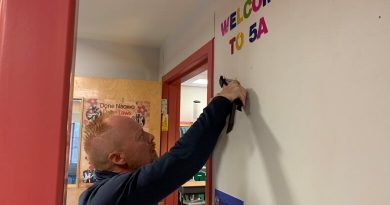Blog: Arctic like ‘discovering a new Africa,’ Iceland

The Arctic Circle Singapore Forum convened last week in the hot and hazy tropical megalopolis.
The forum is an offshoot of the Arctic Circle Assembly, which is the brainchild of Icelandic President Olafur Ragnar Grimsson. The assembly’s third annual meeting took place in Reykjavik last month. In the capital of the North Atlantic island, Grimsson welcomed the audience of over 1,500 participants from over 50 countries by stating, “It is indeed your Assembly, and hopefully it will continue to be a joint endeavor in our common journey towards not only a more responsible Arctic but also a sustainable world.”
Speaking in Singapore, however, Grimsson was blunter in his assessment of the Arctic. He cast aside discussions of a “common journey” by saying that the Arctic “is like discovering a new Africa,” mentioning the North’s wealth of natural resources. Grimsson’s comparison of the Arctic with Africa conjures images of European explorers alongside narratives of a “great game,” “scramble,” or “race for resources.” His comparison also puts the Arctic in a colonial light, alluding to the region as a land of plenty whose natural wealth is just lying in wait to be siphoned off by foreign states and corporations. Such a mentality pervaded 19th century European views of Africa. In 1886, the Reverend Davies wrote in his Illustrated Handbook on Africa:
“The favorable solution of the African question depends very largely on the further question, whether or not the listless carelessness of the natives can be so far overcome as to enable them to develop the resources of the land about them: nor is this entirely hopeless. Already all along the chief rivers the pursuits of trade are overcoming the natural indolence of the chiefs and of other unofficial traders; and the twin passions, avarice and love of display, are producing their natural results in the form of productive industry” (p. 35).
Davies, like many other Europeans of his time, did not think that the “listless” Africans could be entrusted with developing their own continent. Colonial views of Arctic indigenous peoples were also similar, seeing them as lazy or indolent. Part of this apparent listlessness stemmed from the fact that first, the extraction and export-based mode of resource development was completely foreign to peoples who led subsistence lifestyles. Second, neither pre-colonial Africans nor Arctic peoples yet possessed the skills necessary to participate in industrial resource extraction even if they desired such an economy. To remedy the apparent underdevelopment of both and the Arctic in either the 19th or the 21st century, foreign expertise is critical.
Parallel between two regions
Today, of course, corporations and governments know better than to call native peoples lazy or listless. They now also recognize that “Unknown Parts” on maps such as the one of 19th-century Africa above or the 19th-century Arctic below, where Greenland is only half outlined, can be more easily filled in by working with native populations who already know the lay of the land. What’s more, President Grimsson and almost all others who speak about the Arctic note that the region’s development will differ from other eras and places in history. Unlike in colonial times, Northern development will be responsible, and it will involve consultation and cooperation with indigenous peoples. This represents one a key difference between development of the global Arctic and colonial Africa, where foreign countries like Belgium turned the Congo into a hellish rubber plantation, to name one example of exploitation colonialism.
Yet there is parallel between the two regions, and perhaps this is what President Grimsson was subconsciously suggesting apart from the mere resource richness of both Africa and the Arctic. Just as in Africa a century ago (and, in fact, still today), even though Arctic residents and nations can and do profit from Arctic development projects, the primary beneficiaries are the powers that are directing Arctic development. Sometimes they happen to be Arctic governments like Iceland, sometimes they happen to be an Asian island-state lying on the equator, and sometimes they happen to be a private investment firm in California with $240 billion in assets under management. To circle back to Grimsson’s words in Reykjavik, Arctic development may be a “joint endeavor,” but the stakeholders participating in that endeavor comprise a very select group.
The stakeholders at the nexus of Arctic development
The Arctic Circle Assembly had seventy breakout sessions on topics ranging from “Nordic Nexus: Nordic Connections and Solutions for a Developing Arctic” to “Beyond COP21 – The Arctic and Global Climate Diplomacy.” In Reykjavik, Grimsson expressed that the variety of talks demonstrated that “the Arctic Circle truly has become a multidimensional platform of wide-ranging global cooperation.” Those dimensions largely encompass various investment opportunities: oil and gas development, shipping, and ports, for instance, in which international stakeholders with a wealth of capital, expertise, and technology are working together to better integrate the Arctic into the global economy.
The smaller and more specialized forum in Singapore floated four main themes: new sea routes, infrastructure investments, science, and Arctic governance. The first two themes made particular sense given Singapore’s status as a global shipping hub and emergence in recent years as one of the leading Asian states involved in Arctic affairs. TheSingapore Maritime Institute sponsored the event, which is interesting given that the Korea Maritime Institute also sponsors many Arctic conferences and workshops. Together, these activities demonstrate the prominent role that Asian maritime expertise is already exercising in developing the Arctic.
Singapore conference
The program for the one-day forum in Singapore sheds light on the movers and shakers of Arctic development. The president of Iceland participated again, as did prominent members of the Singaporean government, the country’s Maritime and Port Authority, and Singapore-based Keppel Offshore & Marine Technology, an industry leader. Chief investment officers and company chairmen chimed in on how best to develop the region. Law professors and diplomats provided legal and policy expertise, coast guard representatives promoted safe Arctic shipping, and scientists provided the information necessary to plan for the region’s changing environment.
Glaringly, despite Singapore’s professed concern for the Arctic environment and for the well-being of the region’s indigenous peoples, the program did not contain a single representative for the environment and had only one indigenous representative: Thomas Mack, president of the Aleut Corporation, an Alaska Native regional corporation. It is not surprising that the indigenous representative came from a business-minded entity in Alaska, where resource and infrastructure development enjoy wide support across the state. Aleut Corporation is keen to work with Singapore, as the country is interested in investing gateway ports to the Arctic in the Atlantic in Iceland and in the Pacific on Adak Island, where much of the land belongs to Aleut Corporation. Singapore wishes to invest in these northern ports in order to stay ahead of the curve of global shipping, as the equatorial port city could fall out of geographic favor if Arctic shipping were to take off. Aleut Corporation sees a chance to take advantage of its status near the North Pacific Great Circle shipping route and the Bering Strait. It is also simply being entrepreneurial, for in Alaska, Congress’ 1971 Alaska Native Claims Settlement Act helped pave the way for unobstructed capitalist development by turning many indigenous peoples into businesses. The Act endowed them with a huge degree of self-determination, as the CEO of the Cook Inlet Region writes, but it also made it easier for capitalist development to proceed, as the regional corporations could directly profit from its expansion. They therefore now play a willing and crucial role in Arctic industrial development.
An obligation to develop the Arctic
Two hundred years onward from the Great Game in Africa, the process of development has undoubtedly changed. Developmental states like Singapore, Arctic nations like Iceland, Californian investment funds, and Alaska Native regional corporations all form part of the machine that pushes forward the construction of Arctic infrastructure and the development of the region’s natural resources.
Distinctly from the 19th century, the impulses behind northern development are no longer colonial. Instead, the nearly unstoppable force of the market is pushing countries northward. Now that many northern stakeholders can profit from capitalist development, they are hard-pressed to resist the market’s expansion and, from certain angles, exploitation of their homeland.
Improved technology, transportation logistics, and, of course, climate change are also facilitating the poleward move. Scott Minerd, Guggenheim Partners’ Chief Investment Officer, expressed in Singapore: “The average economic annual rate of growth in the Arctic region is the highest in the world relative to any country or any economy…For investors, there is an opportunity here to take advantage of the impact of climate change.”
But more than an opportunity, there is also almost a sense of obligation to develop the Arctic. A tweet from @ArcticAssembly during the Singapore forum is eye-opening in this regard. During his talk, Minerd presented an infrastructure inventory that highlighted “what needs to be built.”
The infrastructure inventory implies that the Arctic is missing something: roads, pipelines, shipping routes – all the transportation corridors that will hasten the movement outward of the region’s bounty of resources. For a region like Africa in the 19th century or the Arctic in the 21st to remain undeveloped and cut off from the rest of the world would represent a failure on behalf of stakeholders, whether they are in the East, West, North, or South, to fulfill their apparent “responsibility to develop.” One key difference between the 19th and 21st century is that the “responsibility to develop” has become “the responsibility to develop responsibly.” But the underlying idea of an obligation to advance and industrialize a faraway region remains the same. Rudyard Kipling’s 1899 poem, The White Man’s Burden – so often mentioned in discussions of the colonization of Africa – could easily be mentioned in forums about Arctic development today.
“To seek another’s profit
And work another’s gain
Take up the White Man’s burden—
And reap his old reward.”
This post first appeared on Cryopolitics, an Arctic News and Analysis blog.
Related stories from around the North:
Asia: Asia ahead on preparing for polar climate change, says U.S. Arctic rep, Eye on the Arctic
Canada: Ice, shipping and the Northwest Passage, Radio Canada International
China: Chinese company mulls more Arctic shipping, Barents Observer
Finland: Finland’s shipbuilding prospects looking up, Yle News
Iceland: Germany, Iceland cooperate on new transpolar port, Barents Observer
Norway: Peace and stability crucial for Arctic economy, Barents Observer
United States: What Shell’s decision means for Alaska economy, Alaska Dispatch News





Thanks for this very interesting and well written blog that raises various issues, including one issue that is often not discussed: the question whether there is the option of ‘non-use’ of nature in Arctic (or any other) Regions. The authors explain that there appears to be an obligation to use and develop (or should we still say, to ‘civilise’?) nature and that today it is the Arctic that needs such attention. I think in part this development is based on historic legal roots. In the time of claiming lands (‘terra nullius’, a term invented in the Age of Discovery) as new territories, the Western legal systems would require occupation and actual use (population) of the area. This view connected well with the conviction that ‘wilderness’ was a place to fear and meant to be civilized and cultivated for the benefit of mankind. The blog is raising the important question whether these convictions and particularly the ‘need to develop and exploit’ should still apply anno 2016. This question does not receive serious attention during most Arctic governance conferences, particularly not among governments and industry stakeholders. They do not want to discuss ‘non-use’, ‘wilderness protection’ or similar concepts. In fact, comments like “use it or lose it” by Canada’s former prime minister Harper in relation to the Arctic still reflect the historic legal roots. The blog is right that the difference is that today, governments and industry aims for sustainable ways of exploitation. But what is sustainable development of the Arctic and why would this exclude ‘non-use’-options? In the discussions on activities of Shell and so many others, we observe that sustainability is generally limited to “the use of best technology” (damage control) or “talking with indigenous people”. Apparently, it is not about whether we should exploit all of the Arctic, but about how we should do it. I certainly acknowledge that the concept of ‘wilderness’ is sensitive, particularly because it is an alien concept to indigenous people and has – also in the time of Western colonization in Africa – resulted in relocation of people from their homelands. However, today, the concept has received a much more positive meaning and I think it would be of great value to broaden the Arctic debate by also paying attention to the issue of preserving certain areas in relatively pristine conditions. In the benefit of nature itself (biodiversity, wilderness), in the benefit of present generations of humans (for scientific research, ensuring options for continuing subsistence ways of life, options for wilderness recreation and earning money from this, etc.), but certainly also in the benefit of future generations.
Kees Bastmeijer
Professor of Nature Conservation and Water Law
Email: c.j.bastmeijer@uvt.nl
Latest book: Cambridge University Press 2016, Wilderness protection in Europe: the role of international, European and national law, http://www.cambridge.org/us/academic/subjects/law/environmental-law/wilderness-protection-europe-role-international-european-and-national-law?format=HB
What absolute nonsense. The hubris is staggering. “White man’s burden”? Are we really in the 21st century? And quoting Conservative politicians with a quote like, “Use it or lose it”? What is next, “Finders, keepers”? But why not, that was the rallying cry of Europeans as they lay claim to North America.
It is now 2019. Russia’s golden boy has completed a military installation closer to the Alaskan border than to the Siberian. The ice caps are melting at a rate no one dared believe, and all anyone cares about is the gold, diamonds, oil, uranium, and other goodies under the earth that they can now access more easily.
This is not a burden laid by destiny upon those with less melanin and male genitalia.
There is a female child nominated for a Nobel Prize who is pointing out that our house is on fire.
If you all must consider yourselves “burdened” with something? Save our planet.